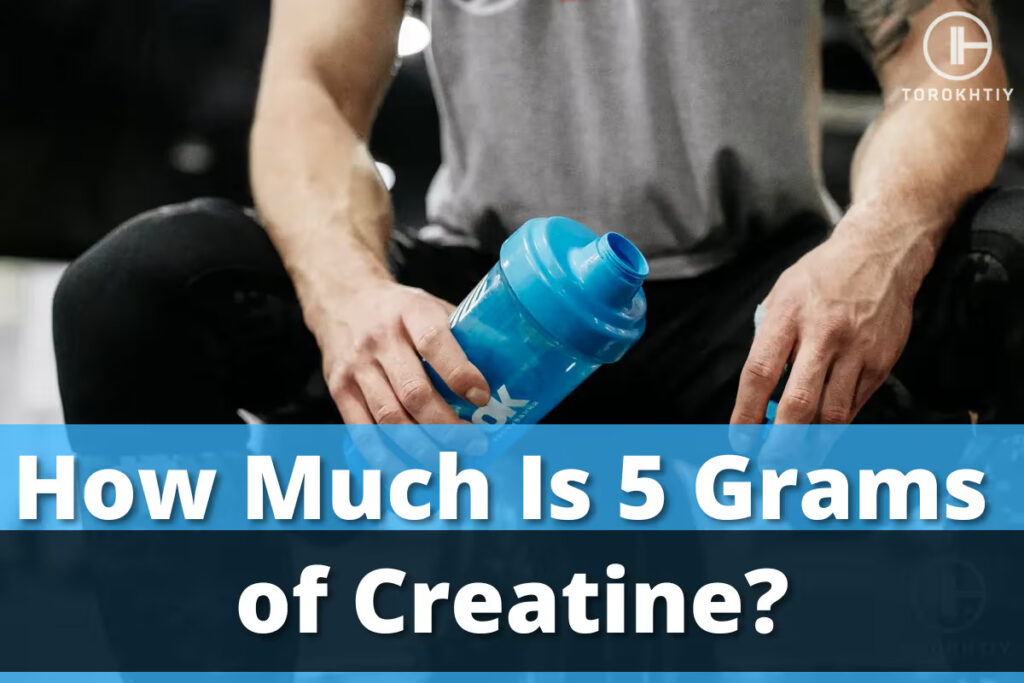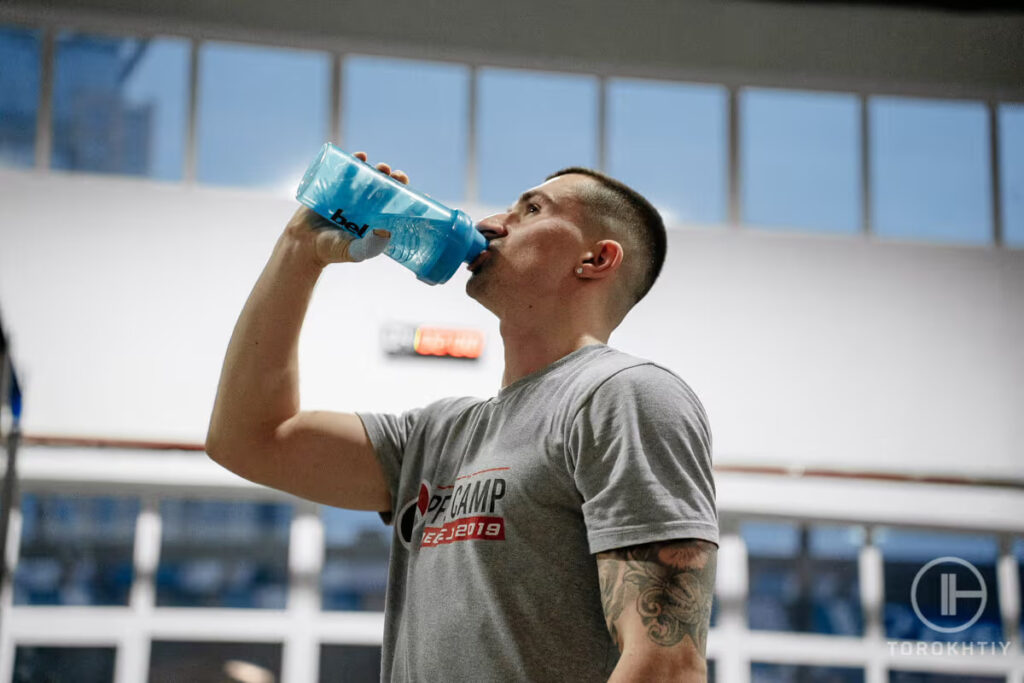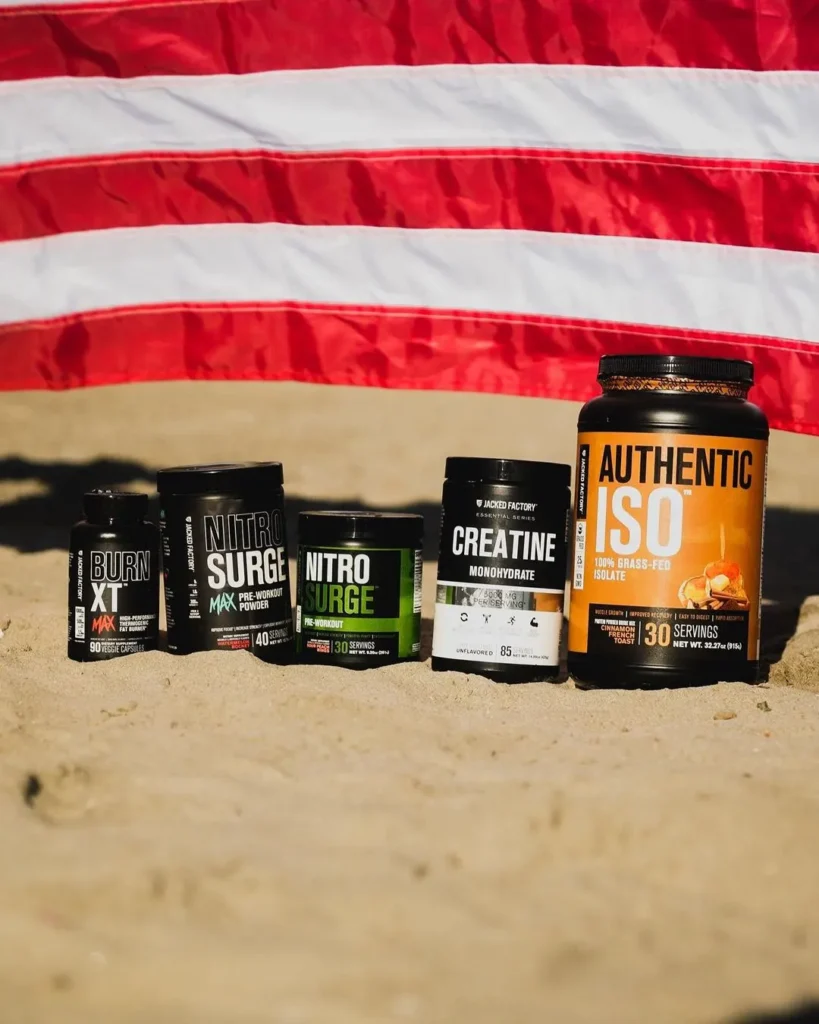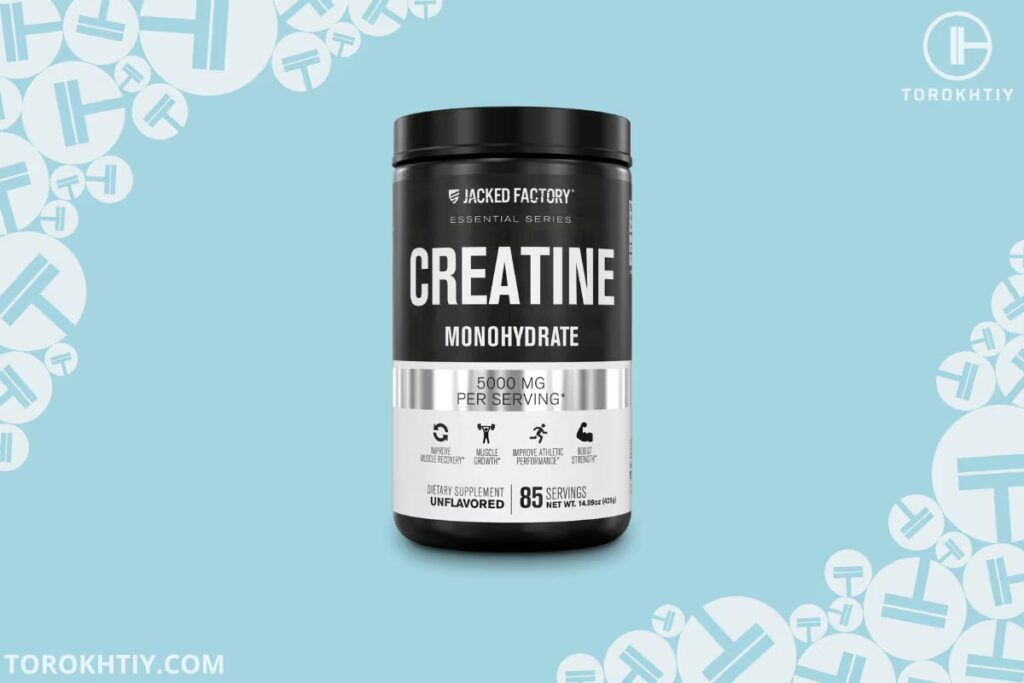How Much Is 5 Grams of Creatine?
You’ve probably heard that the standard recommended dosage for creatine is 5 grams. While this might vary from person to person, it is a good start. However, you might be wondering how much is 5 grams of creatine?
Here, we’ll help you determine how to measure 5 grams of creatine. So grab your spoons or measuring scoops, and we’ll get started!
How much is 5 grams of creatine will depend on the supplement. For example, if you are taking pure creatine, 5 grams can represent one teaspoon with a small rounded heap. However, if you are taking creatine with other components, one teaspoon might have about 3 grams of creatine.

How Much Is 5 Grams of Creatine?
Creatine is a widely popular supplement. It can help improve ATP stores, muscle growth, recovery, and performance. The average creatine dosage is 3 to 5 grams daily (although bigger people can need more).
How to measure creatine will depend on the pureness of the supplement. For example, it is not going to be the same measuring a supplement that is pure creatine against a supplement that has creatine with an additional component.
Now, the easiest way to measure creatine is using the scoop the supplement offers. Normally, they provide 5 grams of creatine. However, remember that the creatine scoop size might vary, so it’s always best to check the nutritional label of the supplement.
But, when you don’t have a scoop, you can easily measure 5 grams of creatine by using a regular teaspoon. So, how many teaspoons is 5g of creatine?
1. Pure Creatine
If we are talking about pure creatine, one teaspoon with a small rounded heap will provide around 5 grams of creatine.
Keep in mind that this might vary depending on the spoons you are using. So, if you are unsure if one of your teaspoon of creatine is, in fact, 5 grams, it’s always best for you to measure it and place it on a food scale. That way, you are sure how much you are getting.
Once you determine how many grams your teaspoons provide, it will be easier to measure without constantly having to weigh it on a food scale. You can just eyeball it. Now, if you are not so good at eye-balling, it’s best if you can weigh it every time you are going to take it.
If you need a smaller dose, say 3 grams of creatine, how much is 3 grams of creatine? This might be more challenging to measure, but it might be half a teaspoon with a rounded heap. Nonetheless, with more specific recommendations, it’s best to use a food scale to ensure you are getting the recommended dosage.

2. Creatine With Additional Component
Now, if you are measuring creatine with an additional component, that is a different story. It will depend on specifics from the manufacturer.
In this case, the best way to determine how much is 5 grams of creatine is to check the nutritional label. Here, the manufacturer will provide how much creatine it has per serving. For example, it might say that in one teaspoon of the supplement, you might find 3 grams.
Jacked Factory Creatine Monohydrate
If you want to avoid the hassle of having to figure out how many teaspoons of creatine are in your supplement, we recommend taking a pure creatine supplement.
In our opinion, one of the best creatine supplements is Jacked Factory Creatine Monohydrate. We like this supplement because it only contains creatine as its only ingredient. So, you know that with each scoop you take (yes, it comes with its scoop), you get exactly 5 grams of creatine.

The company also ensures you get a high-quality product since it’s made in GMP-certified facilities, and it also offers a 100% money-back guarantee policy.
FAQ
How Many Teaspoons Is 5 Grams of Creatine?
It depends on the teaspoon you are using. But, if you use a spoon with a small rounded heap, 5 grams of creatine equals one teaspoon. However, in some cases, it might represent 1.5 teaspoons of creatine. When in doubt, use a food scale to measure how much your teaspoon provides.
Is 5 Grams of Creatine a Day a Lot?
No, 5 grams can be enough to provide a good dose of creatine. However, people with bigger bodies (such as athletes and bodybuilders) might need a larger creatine dose to get all of its benefits.
Should I Take 3 or 5 Grams of Creatine?
If you have a smaller build (such as women), you can benefit from taking a 3-gram dose of creatine. On the other hand, men might benefit from a 5-gram dose of creatine. Still, it’s best to ask a health professional how much you need based on your goals and needs.
Conclusion
Now, what does 5g grams of creatine look like?
The answer to this question is not going to be that simple since it depends on the supplement and the type of measuring material you are using. For example, it’s not going to be the same measuring it with the scoop it comes with than with a teaspoon you find in your kitchen.
Generally speaking, one teaspoon with a small rounded heap will provide 5 grams of pure creatine. But, if the creatine has other ingredients, it’s best to check the nutritional label to understand the manufacturer’s specifications.
If you want to avoid having to figure out how much is 5 grams of creatine, the best thing you can do is get a supplement that comes with its form of measurement. Jacked Factory Creatine Monohydrate is a pure creatine supplement that comes with a scoop that provides 5 grams of creatine. Things cannot get simpler than this!
So, how much creatine do you need to take? Let us know in the comments!
Also read:
- Creatine Supplements at Gnc
- How to Cycle Creatine
- Is Creatine Good for Weight Loss
- Is Creatine Bad for Teens
- Will Creatine Make You Fat
- How Long Does Creatine Last During a Workout
- How Much Creatine Is Too Much
- How Long Does Creatine Last
References:
- E S Rawson, P M Clarkson, T B Price, M P Miles, “Differential response of muscle phosphocreatine to creatine supplementation in young and old subjects” National Library of Medicine, https://pubmed.ncbi.nlm.nih.gov/11851597/ (accessed Jan, 2002), 174(1):57-65.
- Steven L Nissen, Rick L Sharp, “Effect of dietary supplements on lean mass and strength gains with resistance exercise: a meta-analysis” National Library of Medicine, https://pubmed.ncbi.nlm.nih.gov/12433852/ (accessed Feb, 2003), 94(2):651-9.
- Matthew B Cooke, Emma Rybalka, Andrew D Williams, Paul J Cribb & Alan Hayes, “Creatine supplementation enhances muscle force recovery after eccentrically-induced muscle damage in healthy individuals” Journal of the International Society of Sports Nutrition, http://surl.li/kxjyq (accessed June 02, 2009).
- R Aaserud 1, P Gramvik, S R Olsen, J Jensen, “Creatine supplementation delays onset of fatigue during repeated bouts of sprint running” National Library of Medicine, https://pubmed.ncbi.nlm.nih.gov/9809381/ (accessed Oct, 1998), 8(5 Pt 1):247-51.
- Richard B. Kreider, Douglas S. Kalman, Jose Antonio, Tim N. Ziegenfuss, Robert Wildman, Rick Collins, Darren G. Candow, Susan M. Kleiner, Anthony L. Almada & Hector L. Lopez , “International Society of Sports Nutrition position stand: safety and efficacy of creatine supplementation in exercise, sport, and medicine” Journal of the International Society of Sports Nutrition, http://surl.li/kupzy (accessed June 13, 2017).
Why Trust Us?
With over 20 years in Olympic Weightlifting, our team does its best to provide the audience with ultimate support and meet the needs and requirements of advanced athletes and professional lifters, as well as people who strive to open new opportunities and develop their physical capabilities with us.
By trusting the recommendations of our certified experts in coaching, nutrition, dietology, and sports training programming, as well as scientific consultants, and physiotherapists, we provide you with thorough, well-considered, and scientifically proven content. All the information given in the articles concerning workout programming, separate exercises, and athletic performance, in general, is based on verified data. We ensure that you can rely on our professionals’ pieces of advice and recommendations that can be treated as personalized ones which will benefit you and fully meet your needs.
The product testing process is described in more detail here
Author: Oleksandr Maksymenko
Certified Sports Nutritionist,
MSc Sports Dietetics
Specializing in: Weight management, Fitness / Sports nutrition
Oleksandr is a professional fitness nutritionist certified by the Fitness Professional Association (FPA). He follows the principles of evidence-based dietetics and fosters a healthy relationship with food in his clients, ensuring there are no strict prohibitions on their favorite foods or frequent lapses. His primary goal is not only to achieve results for you but also to sustain them over the long term, all while enjoying tasty and delicious food.








